Top 11 Cloud Platforms for Internet of Things (IoT)
Looking over the top 11 cloud platforms for Internet of Things (IoT), we highlight the importance of scalability, cost, and connectivity. Click here for more.
Join the DZone community and get the full member experience.
Join For FreeIoT cloud is a huge network that supports IoT devices and applications.
Top Cloud Platforms
- Thingworx 8 IoT Platform
- Microsoft Azure IoT Suite
- Google Cloud’s IoT Platform
- IBM Watson IoT Platform
- AWS IoT Platform
- Cisco IoT Cloud Connect
- Salesforce IoT Cloud
- Kaa IoT Platform
- Oracle IoT Platform
- Thingspeak IoT Platform
- GE Predix IoT Platform
Here, we will look at the top, most-recommended cloud platforms used for IoT development. Let's get started!
1. Thingworx 8 IoT Platform
Thingworx is one of the leading IoT platforms for industrial companies, which provides easy connectivity for devices. It enables the experience from today’s connected world. Thingworx 8 is a better, faster, easier platform, providing the functionality to build, deploy, and extend industrial projects and apps.
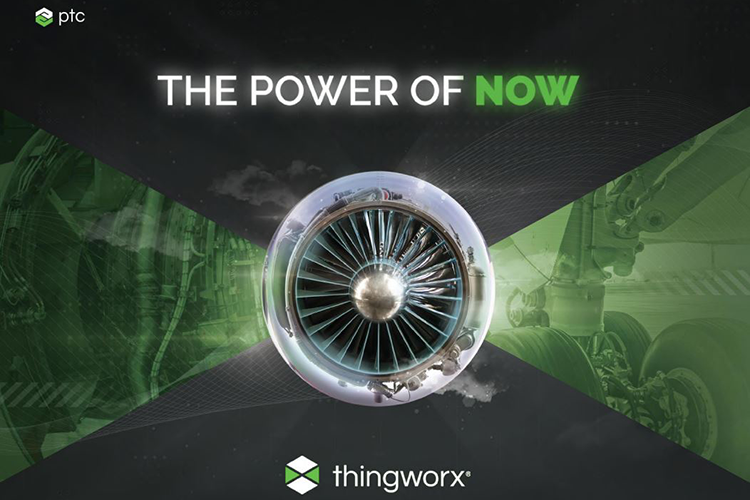
Thingworx is an IoT platform designed by PTC for development of enterprise app development. It offers basic features, such as:
- Easy connectivity with electronic devices, like sensors and RFIDs
- You can work remotely once you are done with the setup
- Pre-built widgets for the dashboard
- Remove Complexity of the project
- Integrated machine learning
Pros
- Easy web page designs for customers
- Easy to manage devices
- Simple connectivity solutions
Cons
- Difficult to use with custom programs in C#
- Hard to manage complex systems.
- The limitation to install edge program on a custom platform.
2. Microsoft Azure IoT Suite
Microsoft Azure provides multiple services to create IoT solutions. It enhances your profitability and productivity with pre-built connected solutions. It analyzes untapped data to transform business. This provides the solutions for a small PoC to Rolling out your ideas. Azure Suite can easily analyze and act on new data.
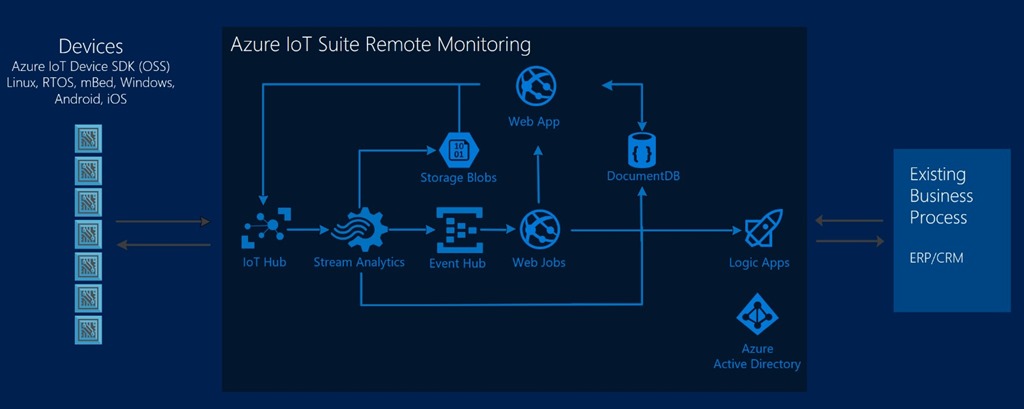
Azure IoT Suite provides features like:
- Easy Device Registry.
- Rich Integration with SAP, Salesforce, Oracle, WebSphere, etc
- Dashboards and visualization
- Real-time streaming
Pros
- Offers third-party services
- Secure and scalable
- High availability
Cons
- Requires management
- Expensive
- No support for bugs
3. Google Cloud’s IoT Platform
Google's platform is among the best platforms we currently have. Google has an end-to-end platform for Internet-of-Things solutions. It allows you to easily connect, store, and manage IoT data. This platform helps you to scale your business.
Their main focus is on making things easy and fast. Pricing on Google Cloud is done on a per-minute basis, which is cheaper than other platforms.
Google Cloud's IoT platform provides features, including:
- Provides huge storage
- Cuts cost for server maintenance
- Business through a fully protected, intelligent, and responsive IoT data
- Efficient and scalable
- Analyze big data
Pros
- Fastest input/output
- Lesser access time
- Provides integration with other Google services
Cons
- Most of the components are Google technologies
- Limited programming language choices
4. IBM Watson IoT Platform
IBM Watson is a powerful platform backed by IBM ’s the Bluemix and hybrid cloud PaaS (platform as a service) development platform. By providing easy sample apps and interfaces for IoT services, they make it accessible to beginners. You can easily try out their sample to see how it works, which makes it stand out from other platforms.
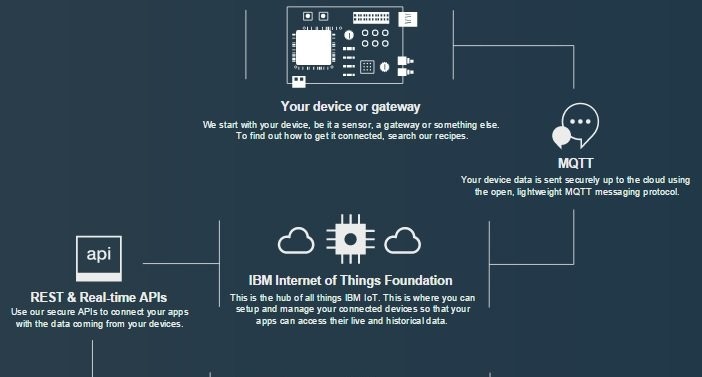
Users can get the following features:
- Real-time data exchange
- Secure Communication
- Cognitive systems
- Recently added data sensor and weather data service
Pros
- Process untapped data
- Handle huge quantities of data
- Improve customer services
Cons
- Need a lot of maintenance.
- Take time for Watson integration
- High switching cost.
5. AWS IoT Platform
Amazon made it much easier for developers to collect data from sensors and Internet-connected devices. They help you collect and send data to the cloud and analyze that information to provide the ability to manage devices.
You can easily interact with your application with the devices even they are offline.
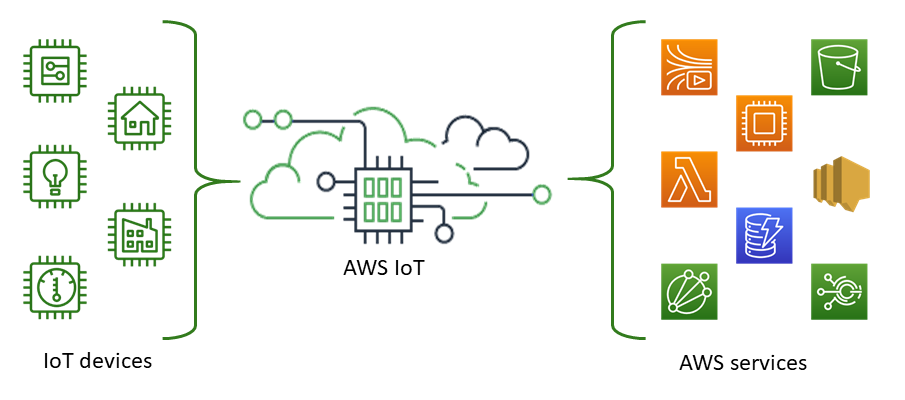
Main features of the AWS IoT platform are:
- Device management
- Secure gateway for devices
- Authentication and encryption
- Device shadow
Pros
- Good integration with laas offering.
- Price dropped over the last six years
- Open and flexible
Cons
- A big learning curve for AWS
- Three outages in the last 2 years
- Not secure for hosting critical enterprise applications
6. Cisco IoT Cloud Connect
Cisco Internet of Things accelerates digital transformation and actions from your data. Cisco IoT Cloud Connect is a mobile, cloud-based suite. It offers solutions for mobile operators to provide phenomenal IoT experience. It provides flexible deployment options for your devices.
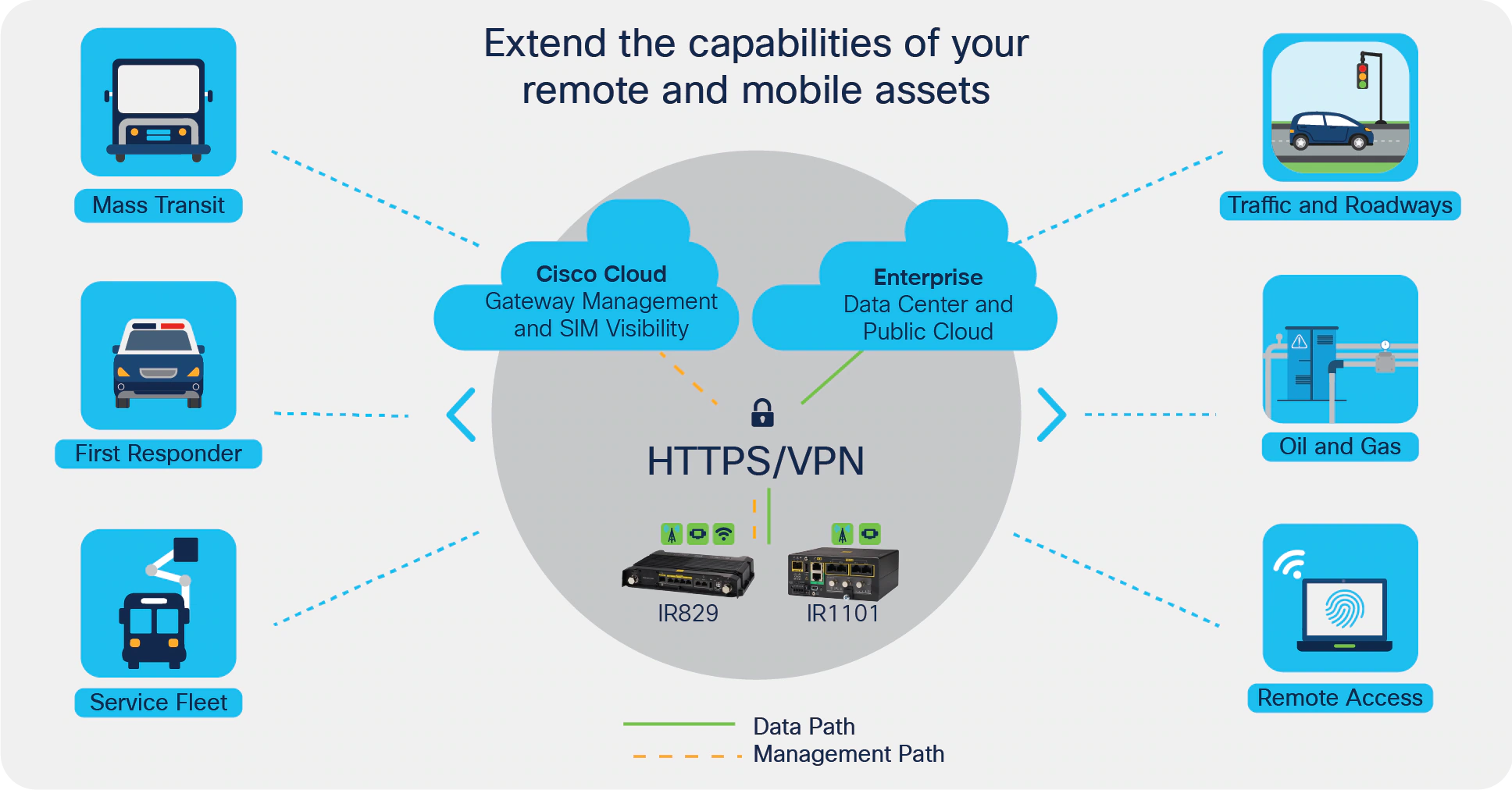
The main feature of the Cisco Cloud Connect:
- Data and voice connectivity
- Device and IP session report
- Billing is customizable
- Flexible deployment options
7. Salesforce IoT Cloud
Salesforce IoT Cloud is powered by Salesforce Thunder. It gathers data from devices, websites, applications, and partners to trigger actions for real-time responses. Salesforce combined with IoT delivers improved customer service.
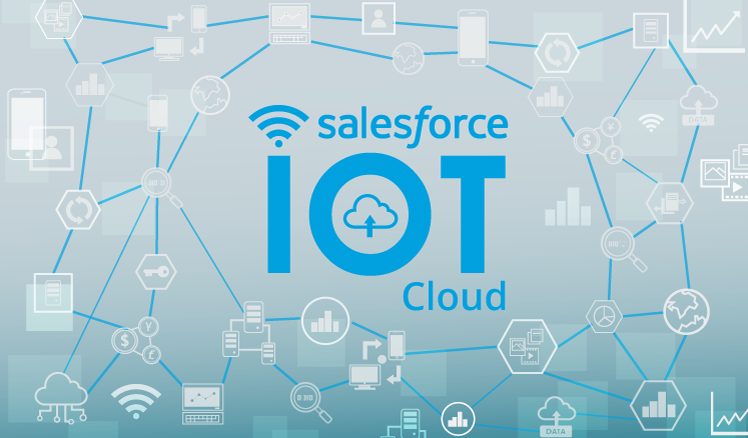
Key features of Salesforce IoT Cloud:
- Enhanced data collection
- Improved customer engagement
- Real-time event processing
- Technology optimization
Pros
- Scale to billions of devices and messages.
- Easy UI designs to connect with customers.
Cons
- Security liability
- Flexibility limitations
8. Kaa IoT Platform
Kaa is an open-source, multipurpose, middleware platform for complete end-to-end IoT development and smart devices. It reduces cost, risk, and market time. Also, Kaa offers a range of IoT tools that can be easily plugged in and implemented in IoT use cases.
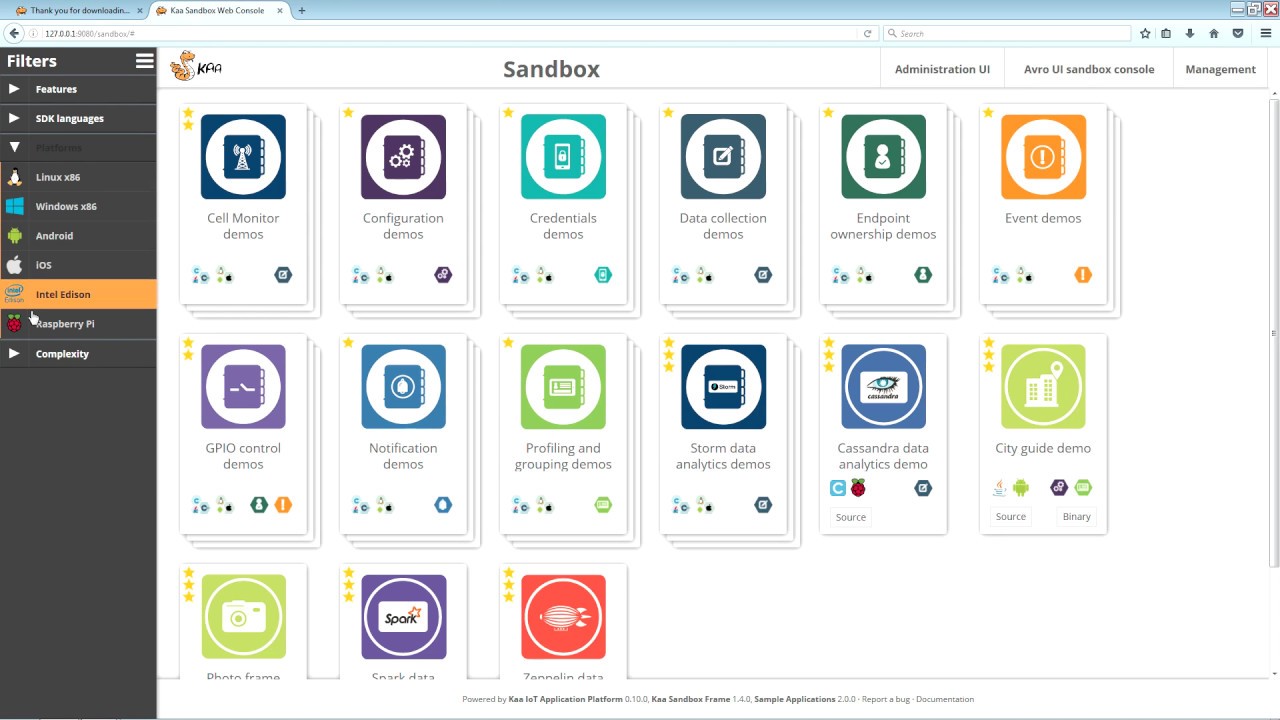
It provides many features that make it unique, such as:
- Reduce development time
- Open source and free
- Easy and direct device implementation
- Reduce marketing time
- Handle millions of devices
Pros
- Ease of use
- Third-party integration
- Data security
Cons
- Not able to deploy applications based on the PaaS model
9. Oracle IoT Platform
Oracle offers real-time Internet of Things data analysis, endpoint management, and high speed messaging where the user can get real-time notification directly on their devices. Oracle IoT cloud service is a Platform as a Service (PaaS), cloud-based offering that helps you to make critical business decisions.
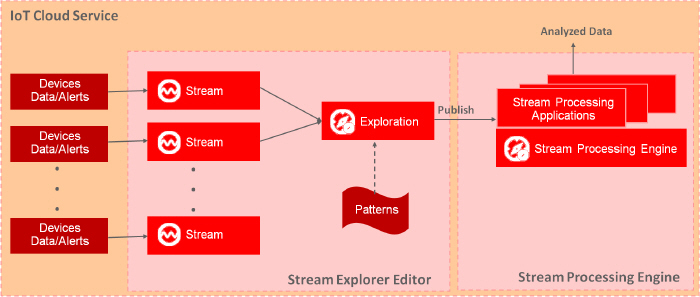
Features offering to users
- Secure and scalable
- Real-time insight
- Integrated
- Faster to market
Pros
- Device visualization
- High speed messaging
- Event store
10. Thingspeak IoT Platform
Thingspeak is an open-source platform that allows you to collect and store sensor data to the cloud. It provides you the app to analyze and visualize your data in Matlab. You can use Arduino, Raspberry Pi, and Beaglebone to send sensor data. You can create a separate channel to store data.
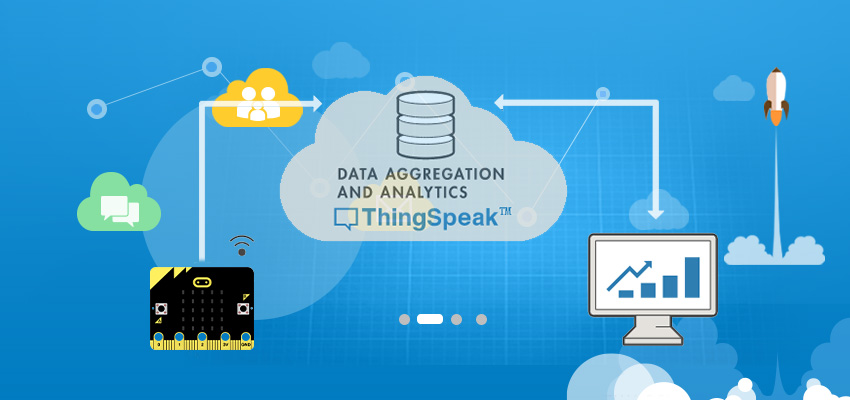
Features of Thingspeak:
- Collect data in private channels
- App integration
- Event scheduling
- MATLAB analytics and visualization
Pros
- Free hosting for channels
- Easy visualization
- Provides additional features for Ruby, Node.js, and Python
Cons
- Limited data uploading for API
- ThingSpeak API can be a hurdle for beginners
11. GE Predix IoT Platform
Predix is the world’s first industrial platform. Predix was designed to target factories and provides simple ecosystem. It can directly analyze data from the machine and store. GE wants to provide the growing industrial Internet of Things for its cloud platform. This platform is secure and scalable.
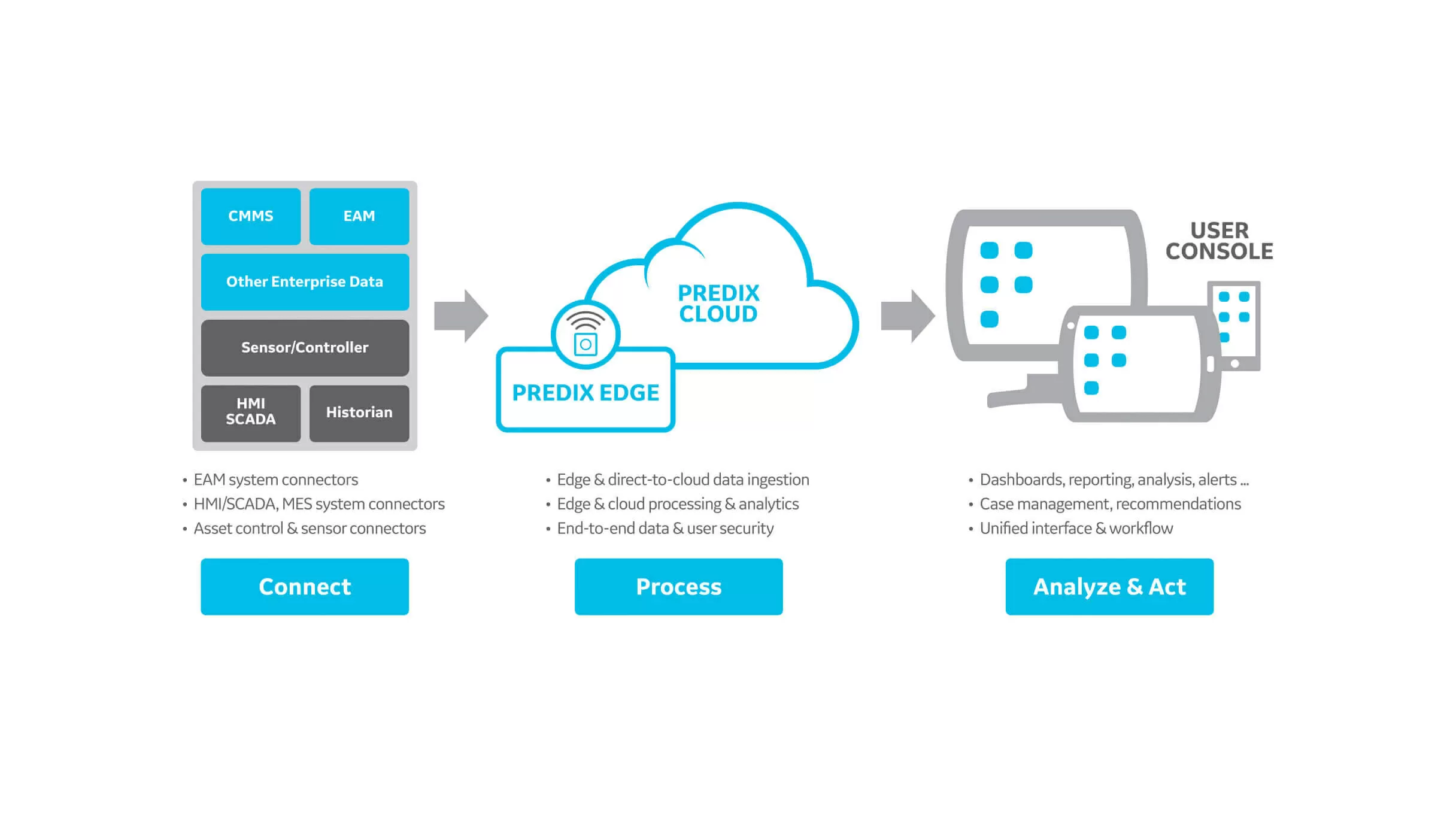
According to the customers their IoT platform can:
- Optimize assets and operations
- Provides key performance data
- Reduces unplanned downtime
- Real-time operational data
Opinions expressed by DZone contributors are their own.

Comments